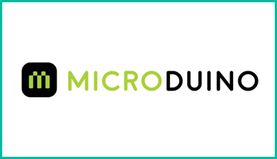
These are to facilitate STEM/STEAM instruction in a broad spectrum of academic institutions. Exclusively designed for the education market, Microduino Mix Kits increase students’ interest and proficiency in skills critical to building tomorrow’sideas, products and workforces.
Microduino has teamed with teachers, administrators, and academic experts and visionaries to develop a series of four powerful learning systems that progressively teach children, as young as five years old, basic electronic circuitry, coding, and product design. Microduino Mix Kits also encourage the creation and exploration of limitless applications beyond included pre-coded design projects. Collectively, the four new products represent an innovative instruction approach that builds upon the company’s existing mPuzzle and mPie product lines to deliver a comprehensive STEM/STEAM education roadmap for elementary and high school students.
“Microduino Mix Kits are ideal for STEM/STEAM teachers and students because they come complete with comprehensive project-based lessons, interesting assignments, and engaging instructional materials, and are aligned with the latest Next Generation of Science Standards (NGSS), International Society for Technology in Education (ISTE), and Common Core guidelines for STEM/STEAM instruction,” said Bin Feng, co-founder and chief executive officer of Microduino. “In addition, these products enable students to enhance their communication and teamwork skills by collaborating together in small, in-class groups. Finally, as students gain more knowledge of electronics and coding, and acquire more advanced product design techniques, Microduino Mix Kits allow them to take on more challenging projects and applications which put those capabilities to good use.”
Microduino Mix Kits deliver two distinct advantages over other STEM/STEAM learning tools:
- Microduino Mix Kits grow along with a student’s understanding and imagination. They are specifically designed so children can tackle new challenges and develop new skills. Rather than focus on one project, each kit level offers 12 projects, and encourages students to design and build their own applications based on the subject matter they learn. The intent is for students to take the STEM/STEAM knowledge they have acquired, and then use it to create their own imaginative designs.
- Each Microduino Mix Kit includes online access to a detailed, 280+ page lesson plan that is constantly updated, and has been validated by an independent, well-respected third-party to be in alignment with current STEM/STEAM curriculum standards.
Microduino Mix Kit Levels Match Students’ Skills
Microduino Mix Kits come in four levels, Mix 1-4, with each kit including 12 projects pre-coded in Scratch 3.0, electronic components, and complementary lesson plans. A cornerstone of the product’s STEM value is its focus on coding, and teaching students how to program various projects and their respective components. A code is the written sequence of commands created in specialized coding editors, such as Scratch, that tell individual electronic components how to behave.
Microduino Mix Kit 1
Coding is fun, and Mix Kit 1 introduces students to the worlds of electronics and coding in an enjoyable, easy-to-understand way. At this entry level, Mix Kit 1 provides students with step-by-step project instructions to familiarize them with electronics through the simplicity of Microduino magnetic, snap-together building blocks. Additionally, the introductory coding environment demonstrates the value of thinking logically and sequentially, and how problems can be solved by following an orderly methodology. In Mix Kit 1, students become familiar with:
- Electronic components.
- Coding logic and variables.
- Reading and editing basic code.
- How to code basic behaviors.
Microduino Mix Kit 2
Mix Kit 2 takes the knowledge acquired in Mix Kit 1, and kicks it into high gear by letting students branch out with more sophisticated components and a deeper understanding of coding and its logic. In Mix Kit 2, students learn:
- How to extend coding to two- and three-step functions.
- How to think in terms of organization, priorities, logic and creativity.
Microduino Mix Kit 3
Mix Kit 3 extends the underlying logic of coding to more advanced controls and behaviors, and moves students from turning on a single light to programming and sequencing multiple actions that work together to achieve common goals. In Mix Kit 3, students learn:
- A wider range of component actions.
- Sequential logic that creates interconnected dynamic behaviors, such as those in smart home environments.
- A prelude to artificial intelligence (AI), human logic, and how programming effectively corresponds to this ecosystem.
Microduino Mix Kit 4
Mix Kit 4 is a STEM student’s paradise of logic and engineering learning. By the time they reach this level, students have learned enough to write their own code, and create original projects from conception to completion. Mix Kit 4 includes a true engineer’s tools and project-based creations similar to previous kits. Mix Kit 4 has everything students need to:
- Write original code.
- Conceive and engineer personalized projects.
- Design, invent and strategize.
- Create projects using Microduino technology for science fairs, robotics clubs and many more!
Prior to releasing its Mix Kit series, Microduino has successfully sold and distributed its consumer-oriented project collections, Itty Bitty City, mPuzzle, and mPie, aimed at helping children as young as five learn the principles of basic circuitry.
To learn more about Microduino and its Mix Kits, please visit www.microduinoinc.com. Educators interested in acquiring Microduino Mix Kits can visit http://microduinoinc.com/educators for more information, or contact the company’s sales department at [email protected].












